Report of the 15th Annual NNN Conference, Kuala Lumpur, Malaysia
The 15th Annual Neglected Tropical Disease (NTD) NGO Network (NNN) Conference, themed "Collaboration for Change: Fostering Global Equity and Strengthening Community Engagement," offered a unique platform for stakeholders from around the globe to unite in addressing critical challenges in the fight against NTDs in line with the WHO 2030 NTD Roadmap aiming for the elimination of NTDs by 2030.
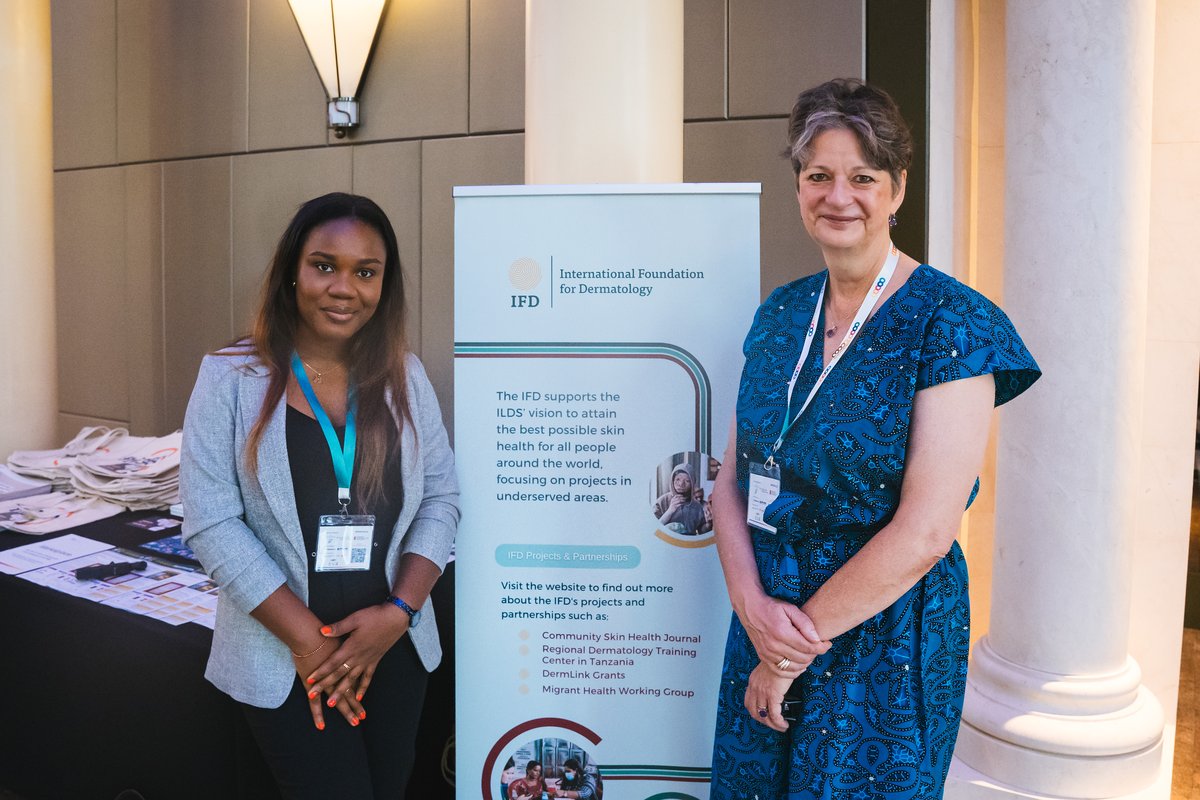
Members from the International League of Dermatological Societies (ILDS) and the International Foundation for Dermatology (IFD) joined this conference in Kuala Lumpur, Malaysia. ILDS/IFD attendance at the NNN helps facilitate partnerships that are essential to tackling issues such as funding, capacity building, education, and research, as well as to amplify advocacy efforts for skin-related neglected tropical diseases (skin NTDs).
Conference Highlights:
Skin Health Symposium and Cross-Cutting Group Meeting:
We had the opportunity to participate in-person in the ‘Skin Health Symposium: Bridging Awareness and Action Across NTDs and Beyond’, jointly organized by the NNN Skin-Cross Cutting Group and the WHO NTD Department. The symposium provided updates on progress, and to explore the integration of skin NTDs within broader NTD frameworks. These sessions included updates of WHO Working Group progress and enhancing capacity building for skin NTDs. Details of the skin symposium will be elaborated on below.
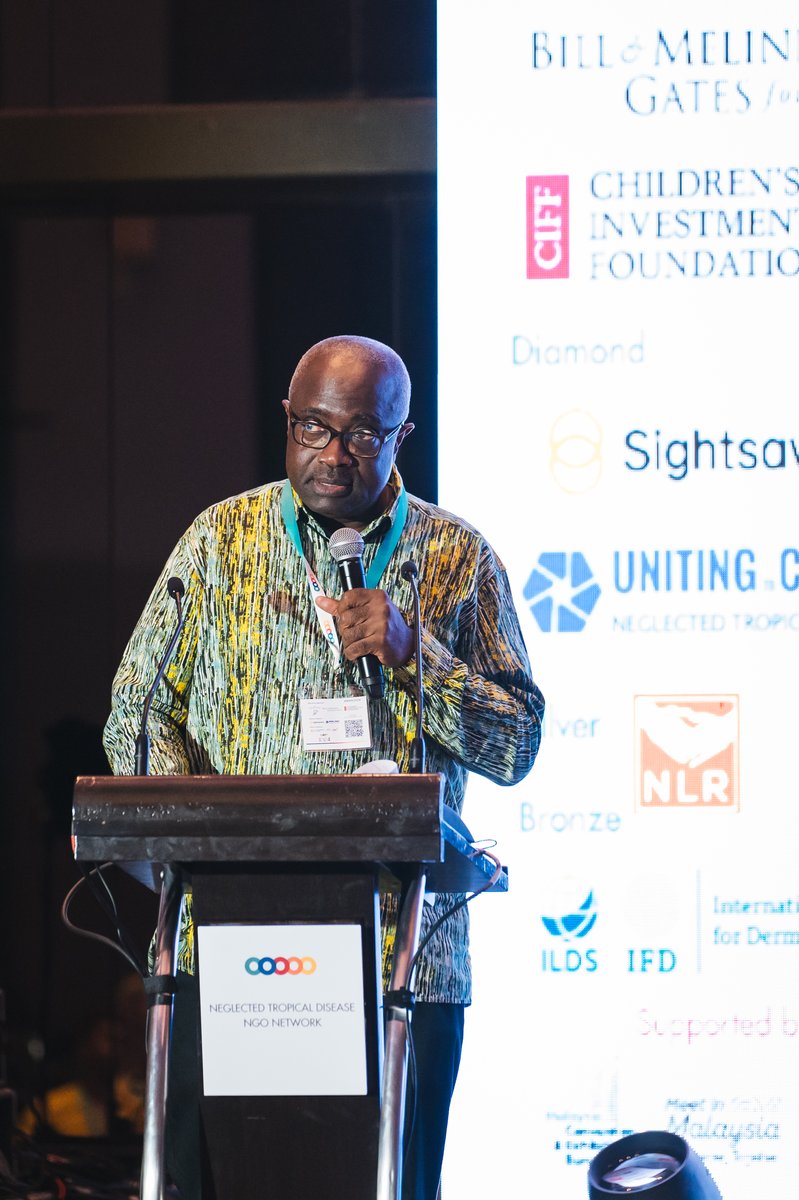
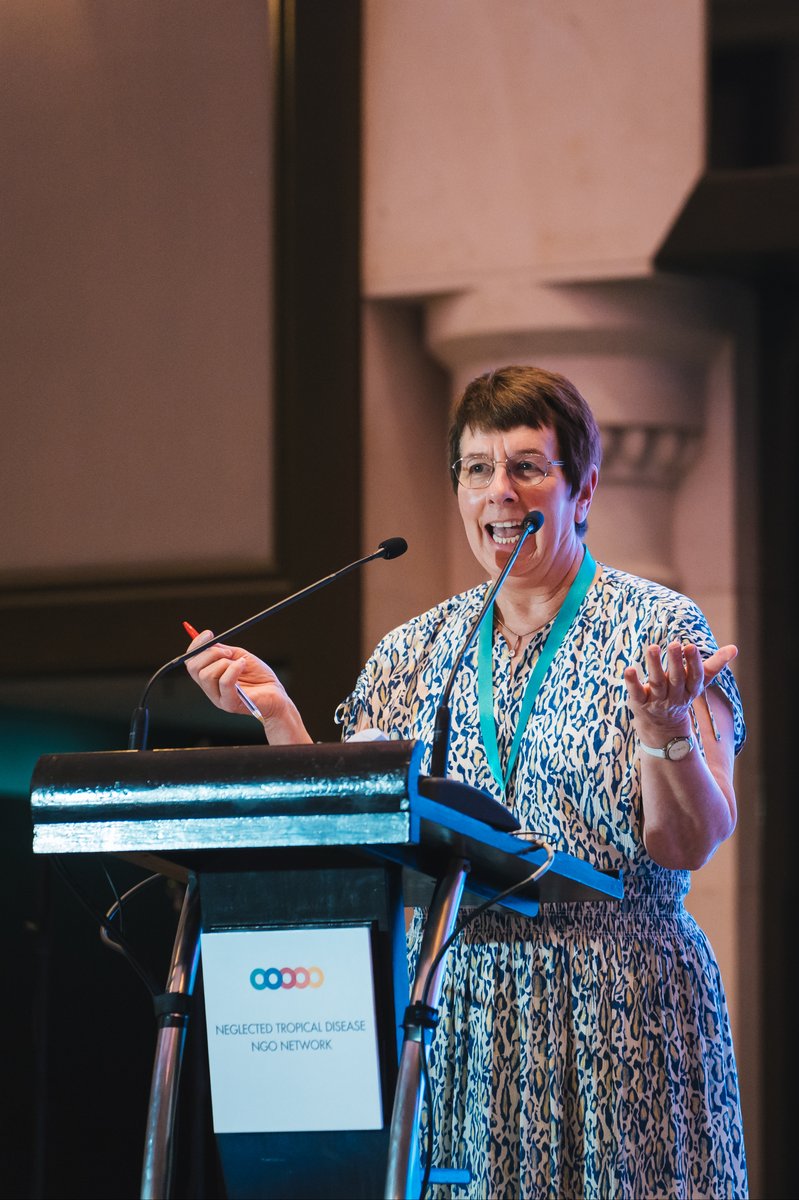
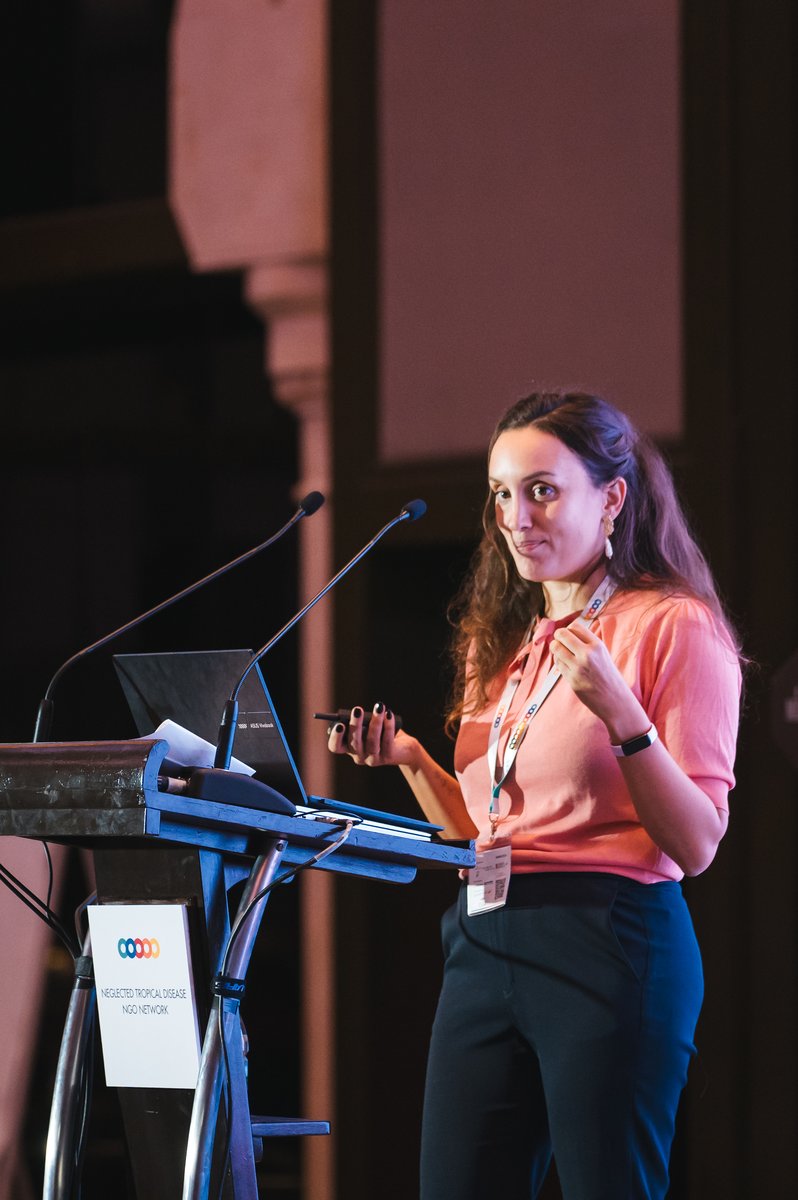
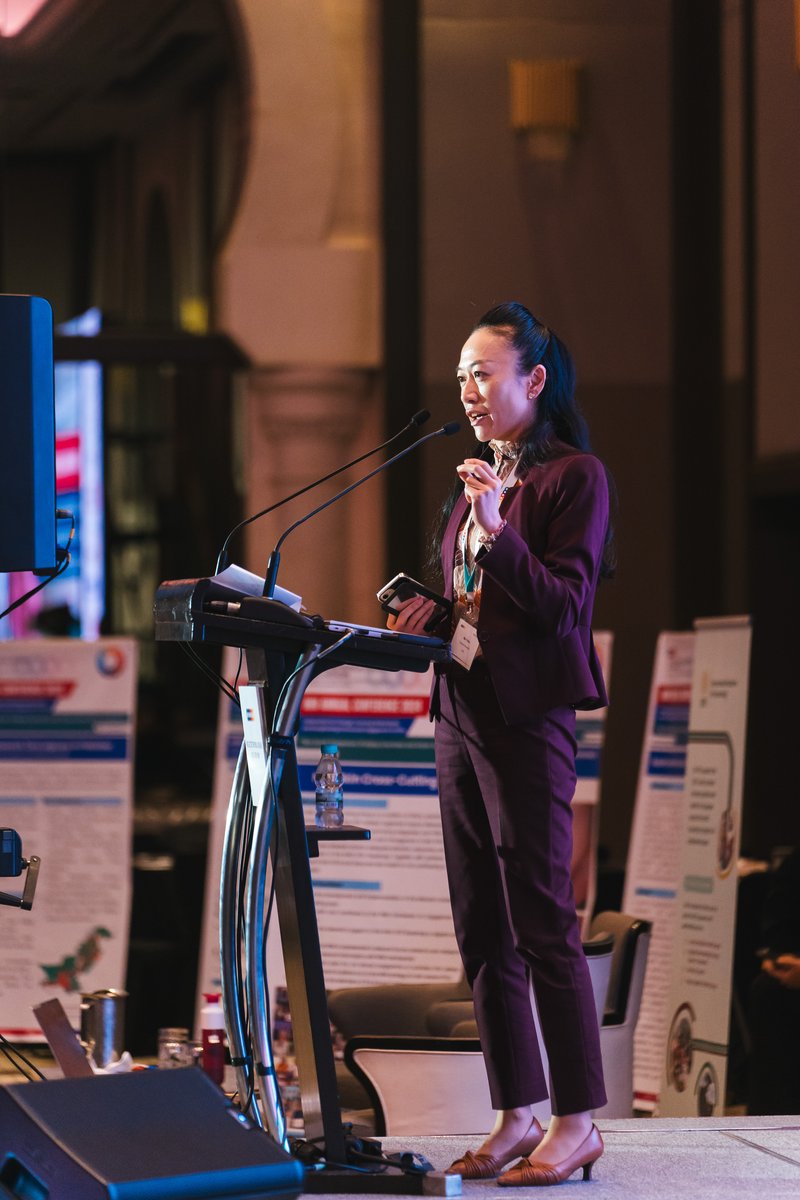
Cultural Diversity Celebration:
Delegates from across the globe celebrated their heritage by wearing national clothes, symbolizing unity in diversity and the global nature of the fight against NTDs.
Launch of the E-Learning InfoNTD Platform:
The launch of the new InfoNTD e-learning platform occurred at the NNN conference. This platform offers flexible and cost-effective training for health workers, with a particular focus on NTDs. It is designed to empower stakeholders, governments and NGOs to strengthen capacity and training within their own contexts, enabling a more coordinated approach to tackling NTDs.
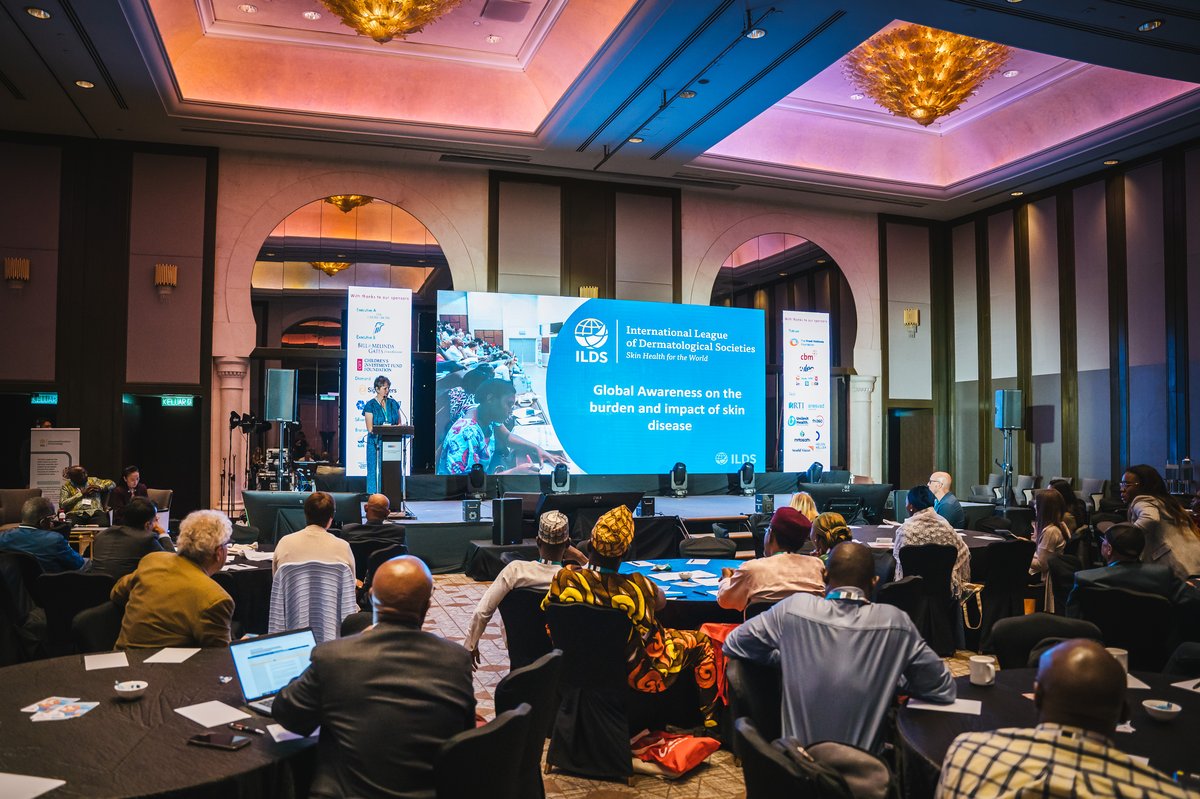
Rapid Fire Sessions: A series of short talks presented by experts, covering topics such as:
- Encouraging and training journalists to cover NTDs to increase media coverage
- School engagement and youth leadership to increase drug consumption for NTD treatments
- Teacher training for early detection and intervention of NTDs
- Integration of NTDs into child health programs, school health services, and antenatal services
- Methods to target hard-to-reach populations through cross-border collaborations at district, subnational, and national levels
- Country-specific strategies, such as post-exposure interventions for leprosy
- Apps created for community engagement and to improve awareness of skin problems, and signpost towards clinical services
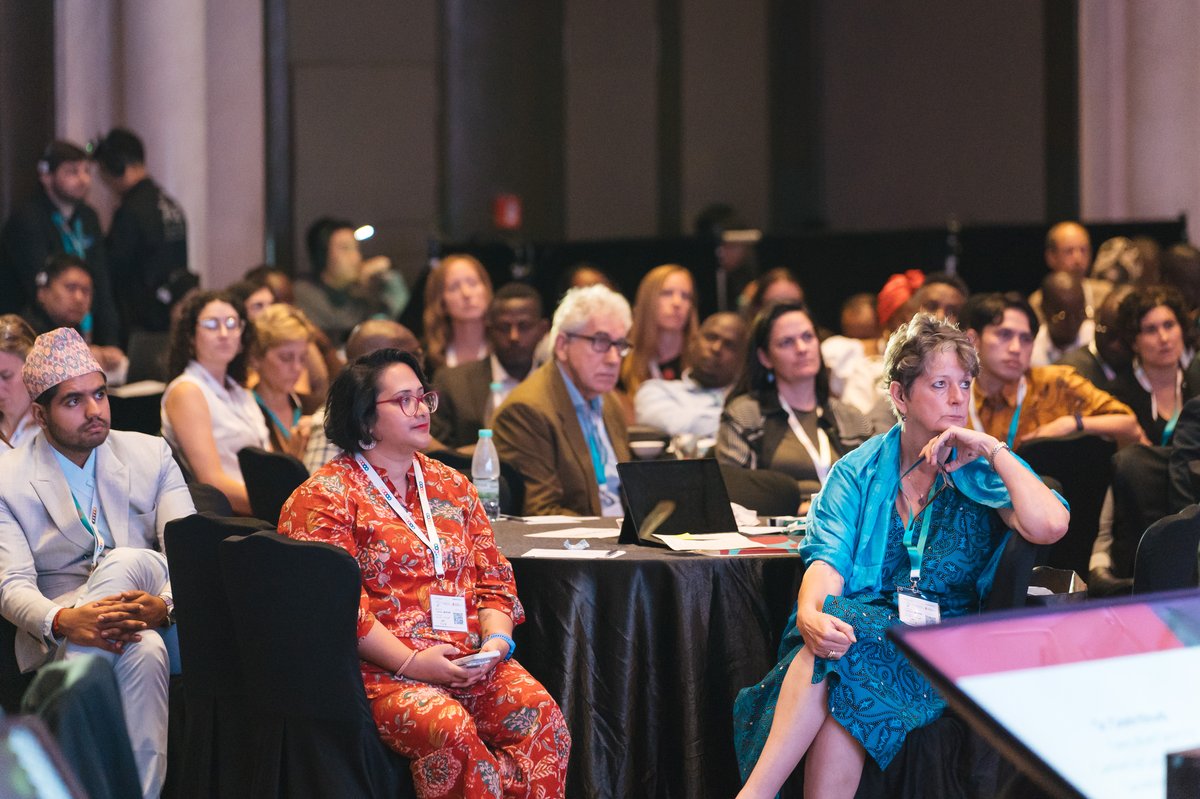
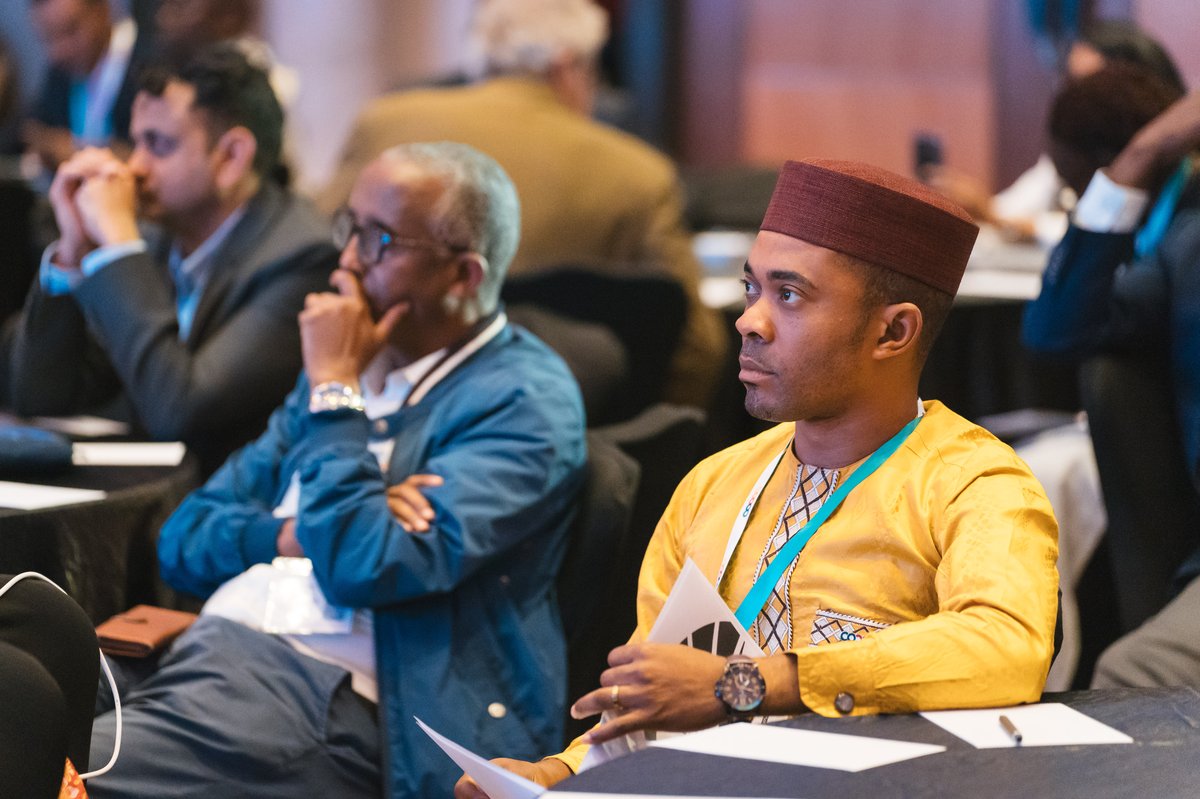
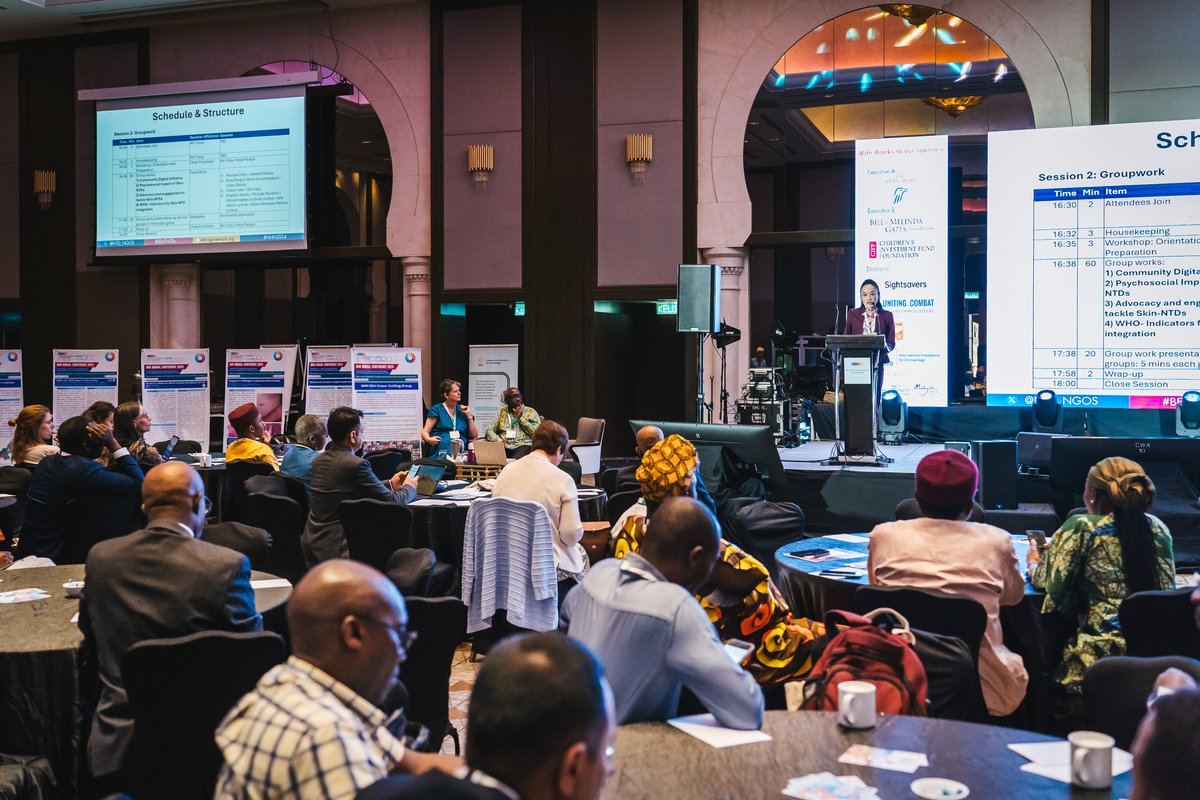
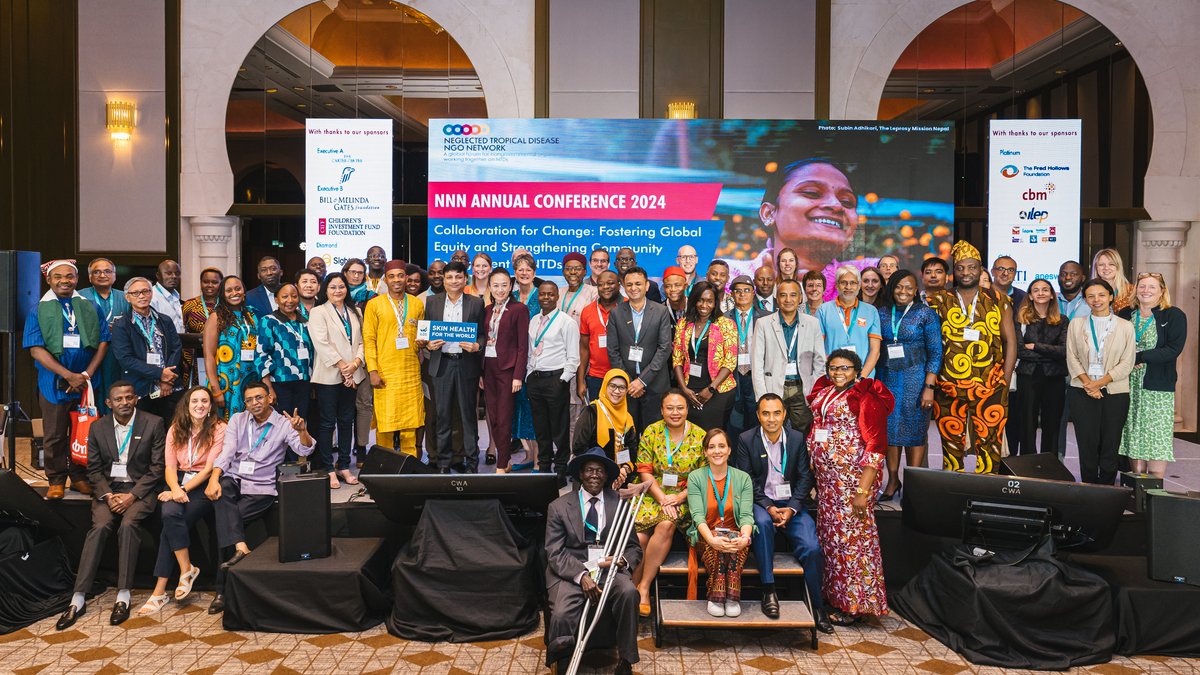
Networking Events:
Informal gatherings over meals, a film night, and a drinks reception, created opportunities for networking among key players in the NTD community, including dermatologists, researchers, NGOs, and representatives of persons affected by NTDs; fostering a sense of community and igniting motivation.
Workshops:
The workshop that I found most impactful was the Ethical Storytelling workshop, which emphasized the importance of involving and empowering the affected person when sharing their experiences, ensuring their dignity and perspectives are at the center of advocacy and collaboration efforts. Enabling the voices of people affected by NTDs to be amplified was a key priority. Discussions revolved around the importance of their involvement in decision-making processes and how to better integrate their experiences into policy and program design.
Key Discussions:
- Advances towards the integration of skin NTDs into broader NTD initiatives, raising awareness of the importance of skin NTDs as a key element of NTD discussions.
- The critical role of amplifying the patient’s voice in advocacy and storytelling to drive awareness and support for NTDs. The importance of partnership, empowerment and destigmatisation of peoples affected.
- New approaches for capacity strengthening, in particular material dissemination to wider populations (journalists, youth workers, teachers, community leaders), reaching marginalized and remote communities.
Skin Health Symposium 2024:
The “Skin Health Symposium: Bridging Awareness and Action Across NTDs and Beyond’ was jointly hosted as an online and in-person workshop by the NNN Skin Cross-Cutting Group and WHO NTD Department. The interactive symposium focused on updates in skin NTD integration: highlighting the global burden of Skin-NTDs and advocacy for the lesser known Skin-NTDs, as well as discussing country experiences. The symposium highlighted updates in skin NTD integration and featured progress of the Working Groups by Kingsley Asiedu (WHO), skin disease advocacy by Claire Fuller (IFD, Chair), and five country experiences from different regions were shared. Rie Yotsu and Niraj Parajuli (NNN Skin-Cross Cutting Group, Chair
and Vice Chair) underlined the global burden of skin NTDs and their gaps, especially focusing on the lesser known skin NTDs like cutaneous leishmaniasis, Buruli ulcer, and deep mycoses as well as Noma – which has been a recent addition to the WHO list of NTDs.
The symposium facilitated a lively discussion by working groups sharing of country-level experiences. A key purpose of the NNN platform is to foster collaboration across individuals and organizations. To support this, participants engaged in group work on four topics:
- Community Digital Initiative: Exploring how digital tools can enhance community-based initiatives for NTD prevention and treatment.
- Psychosocial Impact of Skin-NTDs: Addressing the emotional and psychological toll of skin NTDs on affected individuals.
- Advocacy and Engagement: Developing strategies to engage stakeholders and policymakers in addressing skin NTDs.
- WHO Indicators for Skin NTD Integration: Identifying priority indicators to measure progress towards skin NTD integration to advise NTD monitoring frameworks and policy-making.
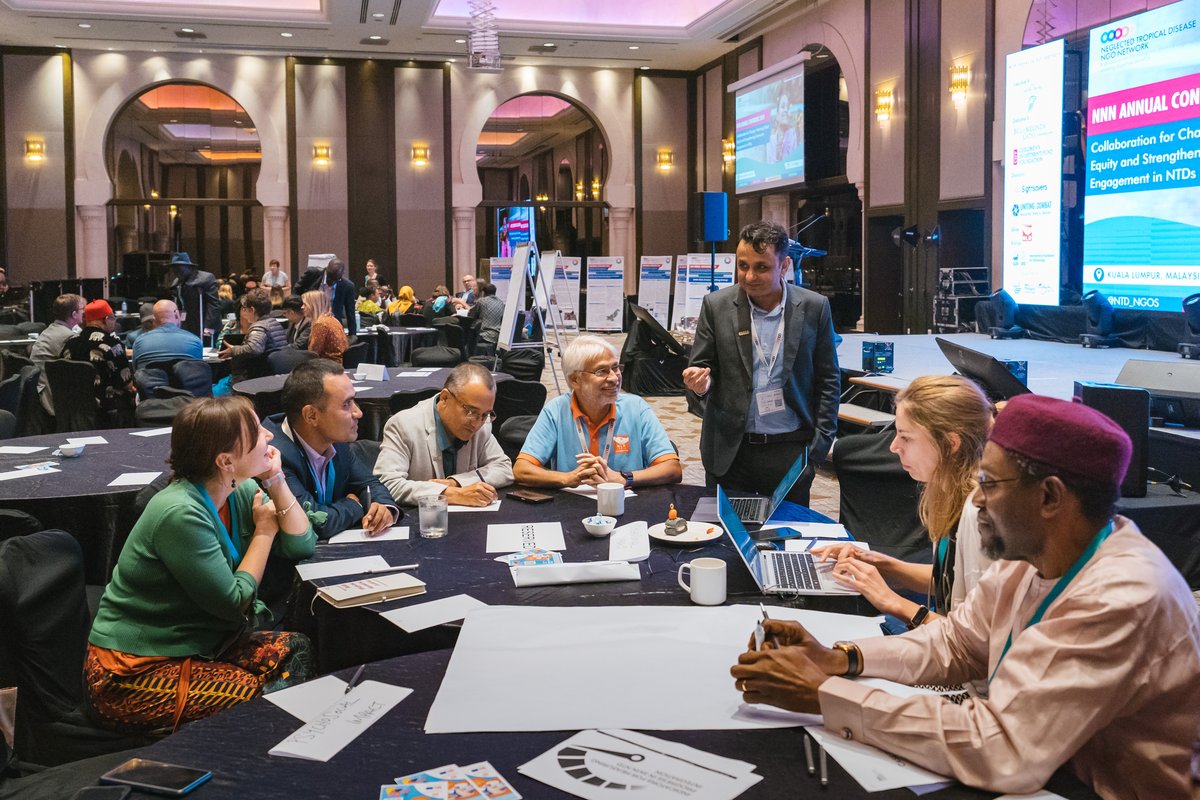
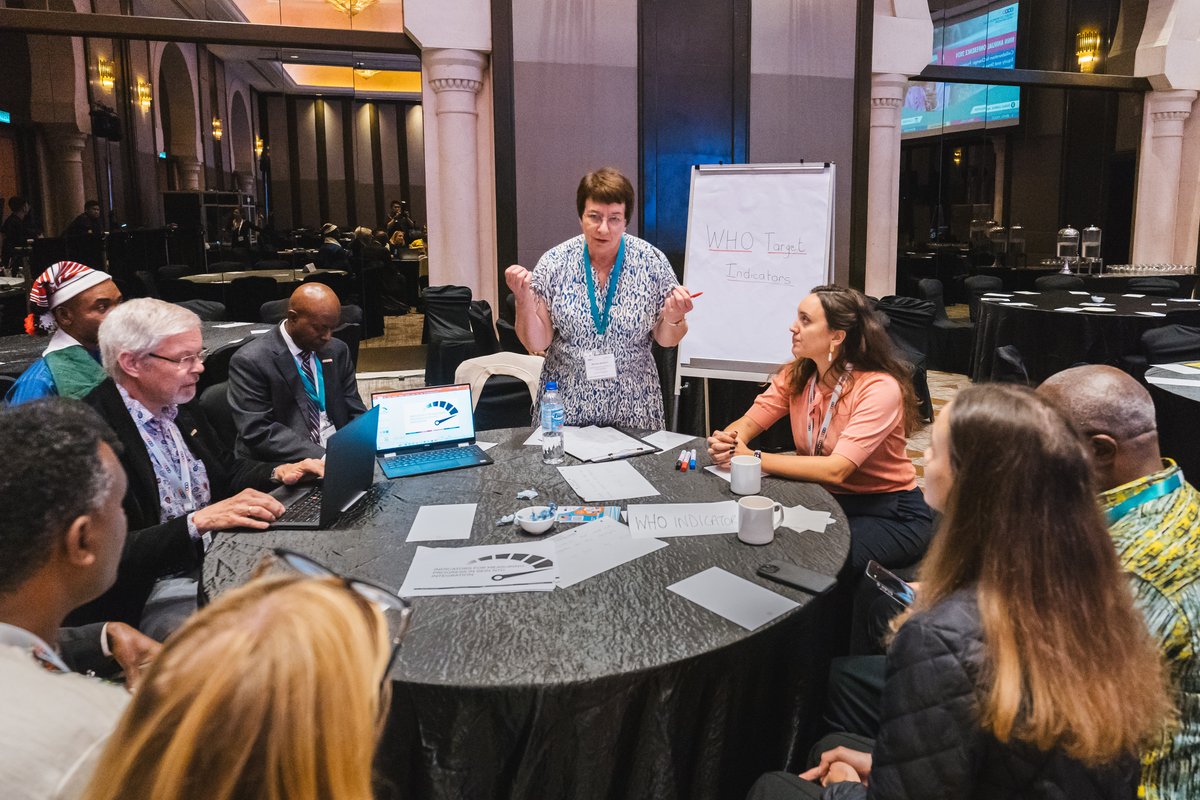
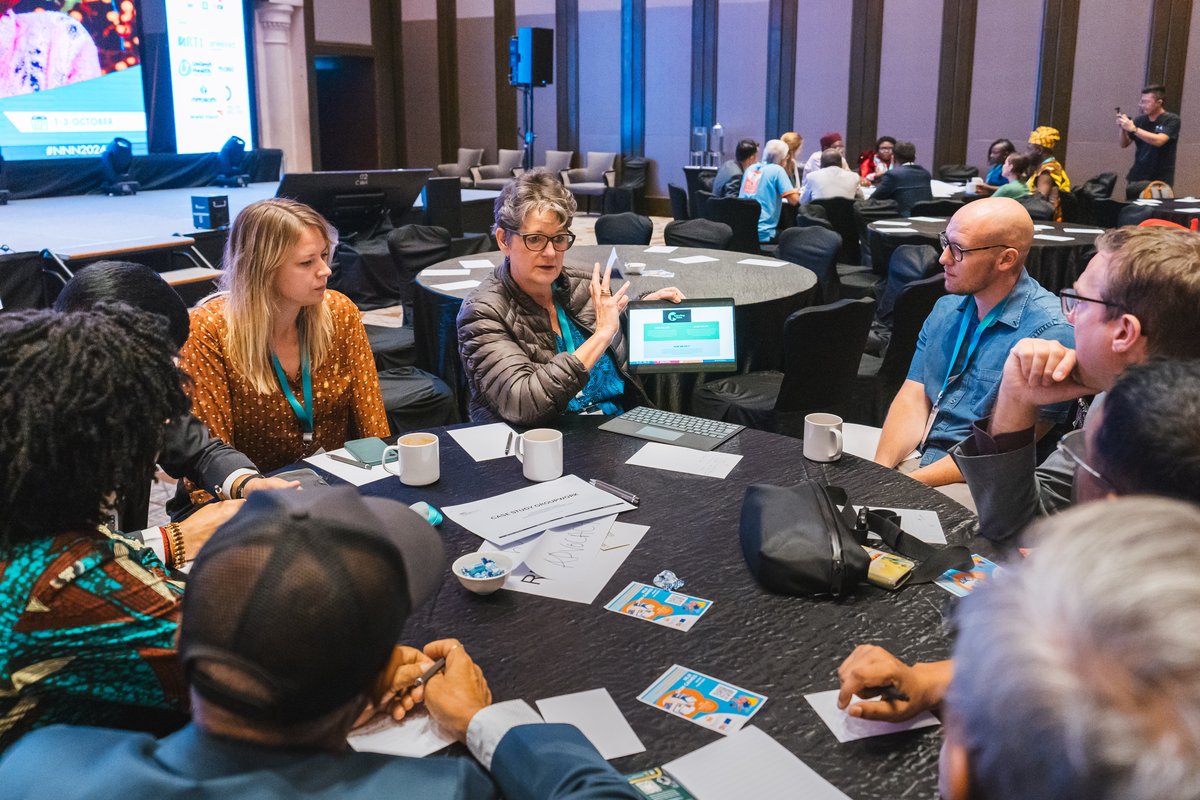
Gilbert Baayenda, Vice-chair of the NNN, highlighted the essence of the NNN Conference with a powerful statement:
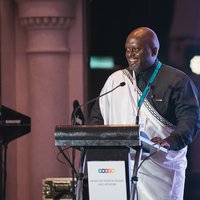
NNN success is measured by the lives that we change, and the lives that we touch, the hope that we restore, and the partnerships that we build in this room.
Gilbert Baayenda
Key Takeaways:
- ILDS/IFD together with the NNN Skin-Cross Cutting Group provided an essential representation of skin NTDs as well as common skin disease within the wider NTD community, and enabled sharing of ideas, networking and collaboration among global NTD stakeholders and NGOs.
- The collaboration of various NGOs and cross-cutting working groups at NNN allowed brainstorming from different perspectives, of methods to build and distribute training tools to appropriate target groups to raise awareness of NTD work towards the WHO roadmap targets of elimination of NTDs by 2030.
- The importance of dignified participation of affected persons in advocacy, training, implementation planning and research. To amplify their voices and ensure these perspectives are included in decision-making, striving towards support, destigmatisation and empowerment of those affected.
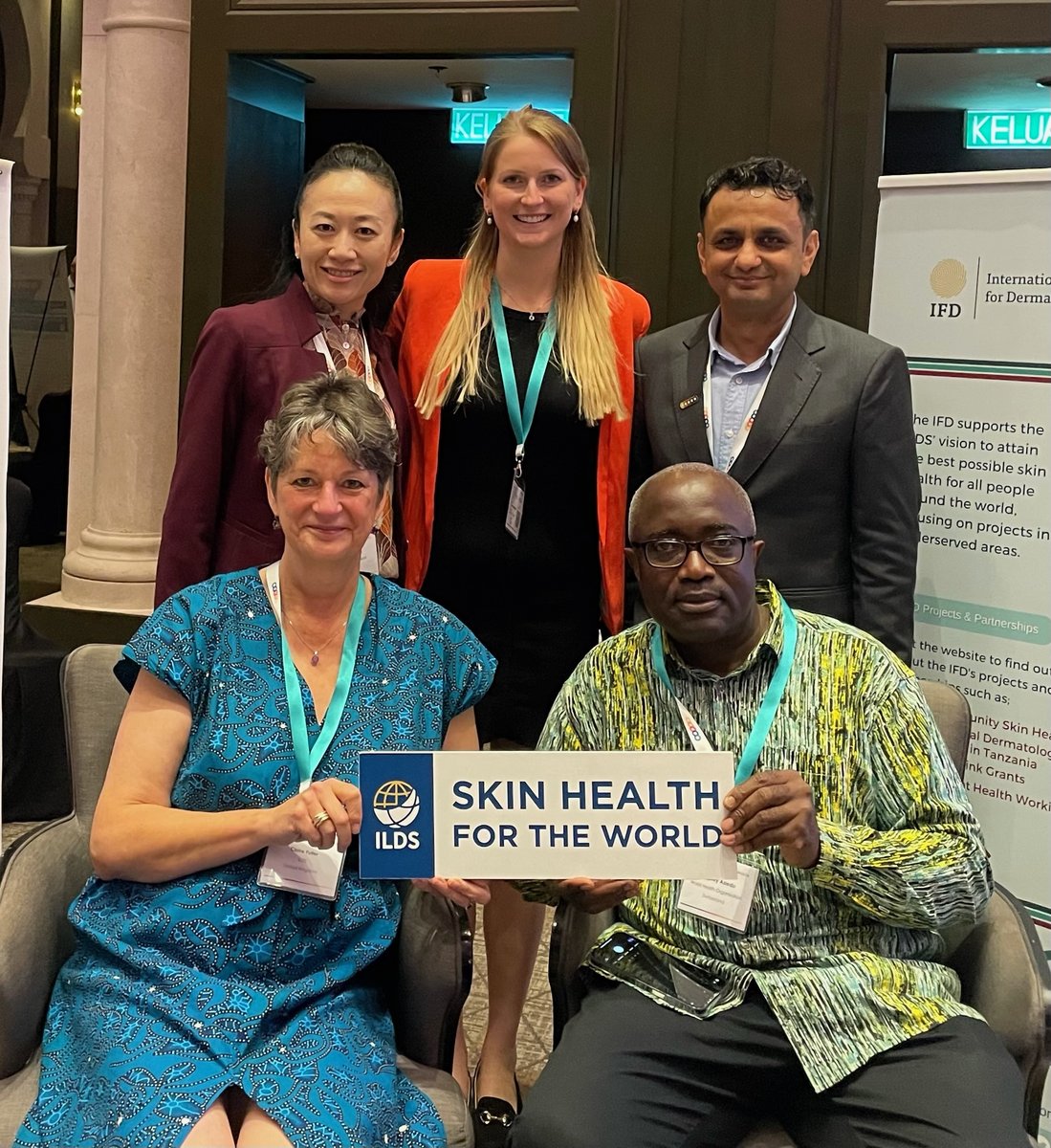
The ILDS/IFD at the NNN Conference 2024 continues to contribute to a growing global movement dedicated to eradicating skin NTDs and improving health equity for all. It is also an important element for sharpening the focus on skin disease as a global health priority, a key contributor to the effective achievement of the UN sustainable development goal of universal health coverage. We look forward to working with our partners to help progress the WHO 2030 NTD Roadmap to eliminate NTDs and in the process increase clinically competent access to diagnosis and care of all patients with skin disease, to achieve Skin Health for All.
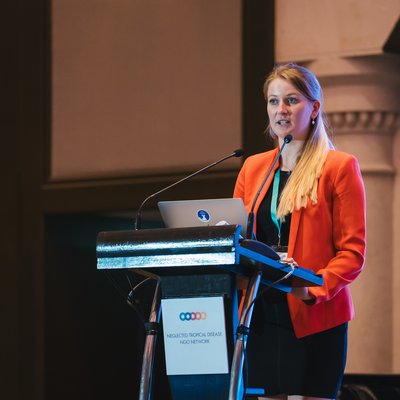
Dr Annika B. Wilder-Smith
ILDS Intern
This article was written by Dr Wilder-Smith. Dr. Annika B. Wilder-Smith graduated from Medicine at the University of Edinburgh in 2022 with a BSc in Global Health. She is currently pursuing a career in dermatology, with a special interest in global health dermatology. As an intern with the International League of Dermatological Societies (ILDS), she is dedicated to improving capacity and training in dermatological care for resource-limited settings.